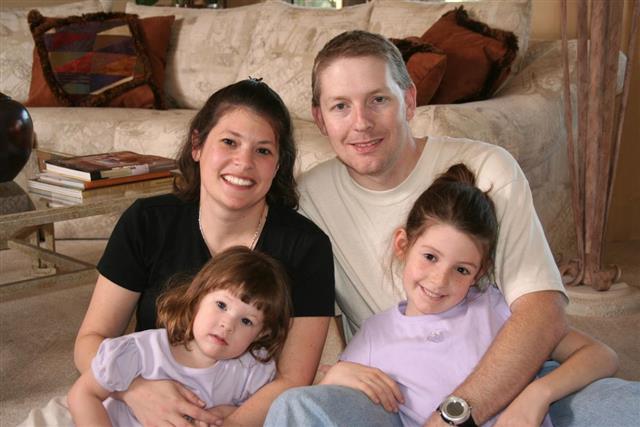
As kids, we know we were raised right. But when it comes to raising your own kids, your parents’ advice on parenting suddenly seems very outdated and terribly inaccurate. Methods that you were probably raised on now seem dangerous and horrendous for your child. There are some old-fashioned parenting tips that you should just avoid.
As new parents, there are several young men and women confused with how to raise their child the way they want to. Nosy, but beneficent in-laws, and elderly aunts don’t always offer the best advice. What seems natural to them, seems absurd to you. When they ask you to rub your child’s gums with alcohol to reduce swelling/infection, something inside you just screams no. Though some tips are outdated, others are just outrageous.
If you find there is no way for you to escape such advice, simply listen and ignore their advice. If that seems difficult, politely let the other person know that you are not comfortable with the particular tip and if they have other tips, they would be welcome to share them with you.
Here are a few outdated tips from old-fashioned parents that are ineffective and really don’t work now.
Hit Them to Discipline Them
Big no. This is neither permitted nor followed these days. There are other ways to discipline children, and none of them include physical or verbal abuse. Children will learn better if you set examples instead of hitting or scolding them. You send out wrong signals about it being okay to use physical force on people when something doesn’t happen right. You’re probably teaching your kid to be a bully if you do this.
If your child is not eating veggies at the table, set a consistent example yourself and see the results. Positively reinforce good behavior, and ignore the bad. Don’t pay all your attention on the bad and ignore the good. Wrong strategy. Children are smart, so give them the credit of learning and understanding over time. If they do not learn/obey once, never lose your cool and reach for the rod. Try to repeat yourself and see what happens in a few weeks. If this still does not work, talk seriously to the child and make him understand the benefits and advantages of what you are asking him to do. Eventually, s/he will see it. Using time-outs and punishing by grounding is okay as the last option. It’s never okay to remove your anger and frustration on the child either. Do not try to teach them things when you are yourself not in a good mood.
Other family members spanking your child is a complete no-no, and you have all the right in the world to express your disapproval and limit that person’s contact with your child.
Be Strict Always
Be strict, but not always. If you are strict about bedtimes everyday, it’s alright. But you can occasionally let them stay up late every other weekend. A little infrequent indulgence makes it known to children that you are not averse to something, but will allow it if done in limited amounts. It shows that you are not absolutely intolerant, and ensures dialog and communication in the future so they do not attempt anything behind your back.
Don’t Allow the Child to Get Angry at You
Allowing your child to express emotions is not a bad thing, even if it is anger. Teach your child to constructively express emotion and direct it. If your child is angry at you for something, review why he is doing so, and review your own actions as well. Apologize if necessary. If (s)he is angry at a third party, make sure he receives help, good counsel, and resolution rather than ignoring or shouting it down, as old-fashioned parents are wont to do.
Children have feelings that you have to respect sometimes, but they need to know what they can be mad about. This is different from encouraging tantrums. You need to make sure that your child can talk to you regarding things he feels uncomfortable about, even if it is about you. Not allowing him to talk to you will end in horrible repercussions where there won’t be any communication left between you in the future.
Forcing Them to Finish the Food on the Plate
A majority of older parents agree that kids should be taught to not waste food and finish everything on the plate, which is absolutely correct. But they also need to be taught to listen to their bodies and stop eating when they feel full. Don’t expect them to finish an adult-sized meal. Set a rule that every dish made for the meal must be eaten, but let the child take his or her portion size. Teach them that another helping is not a bad thing, but they should not take more than they need.
No Explanations Needed
You’ve heard it a lot from your own parents: “Why? Because I said so that’s why.” This is not enough to satisfy the curiosity of your child. Explain why you have to take the measure, instead of bossing over the kid without a reason. Children are more likely to cooperate once you consider them on an equal footing and respect their intelligence instead of just laying down rules they don’t get. You don’t need to be mysterious in order to manage your child.
You’ll Spoil Them by Showing too much Love
Nope. As a parent, showing love to your child is the most important thing, no matter his/her age. Being stingy with praise does more harm than good, at least where you know praise is needed. You cannot spoil a child by hugging or kissing them every few days. It reassures them that there is someone around who is looking out for them. What you shouldn’t do is to be overly indulgent or abundant. Set firm limits and rules, and stick to them without compromising on the display of affection.
Potty-training and Breastfeeding
New parents hear constant advice on how to potty-train their kids ASAP. You have to observe your child regarding when he is ready to train, and starting prematurely is going to backfire. The same goes with breastfeeding. If you are able to, do it for at least the first 4 months after childbirth. Elders will probably tell you it’s not worth it or you should feed more. You decide when your child starts eating solid food; when he is ready enough to take it directly from the spoon.
You Know What’s Best for Your Child
No, you don’t always. You’re not God. At least when your child was young, you did know a little about what is best for her. But times may come when you’re completely stumped about what you should do, especially when your child hits adolescence or is past it. Middle-aged or young adult children usually learn to make decisions that are in their best interests, though you might not always agree with them.
The trick with parenting is to be authoritative and not authoritarian. Your parenting style determines what your child will become later on. The environment you provide for your parenting will also play a key role in the way your child will parent later on. Do what you feel is right in every individual case. Pick and choose advice, because not all parenting tips passed on to you are bad or ineffective. Sometimes, grandmothers can be right about what you’re supposed to be doing. If you are in doubt about what to do regarding developmental milestones like walking, or turning in bed, or puberty, do not hesitate to go to the pediatrician or do some research of your own. If you’re confused about how to raise the child, there are several local groups, and trusted aids who will guide you down the right path.











